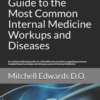Relationship between admission coagulopathy and prognosis in children with TBI
sjtrem.biomedcentral.comWe concluded that admission APTT > 39.2 s and fibrinogen ≤ 120 mg/dL were independently associated with mortality in children with moderate to severe TBI. Early identification and intervention of abnormal APTT and fibrinogen in pediatric TBI patients may be beneficial to their prognosis.
We retrospectively identified children with Glasgow Coma Scale ≤ 13 in a tertiary pediatric hospital from April 2012 to December 2019 to evaluate the impact of admission coagulopathy on their prognosis. A classification and regression tree (CART) analysis using coagulation parameters was performed to stratify the death risk among patients.
A total of 281 children with moderate to severe TBI were enrolled. A receiver operating characteristic curve showed that activated partial thromboplastin time (APTT) and fibrinogen were effective predictors of in-hospital mortality.
According to the CART analysis, APTT of 39.2 s was identified as the best discriminator, while 120 mg/dL fibrinogen was the second split in the subgroup of APTT ≤ 39.2 s.
Patients were stratified into three groups, in which mortality was as follows: 4.5 % (APTT ≤ 39.2 s, fibrinogen > 120 mg/dL), 20.5 % (APTT ≤ 39.2 s and fibrinogen ≤ 120 mg/dL) and 60.8 % (APTT > 39.2 s).

















